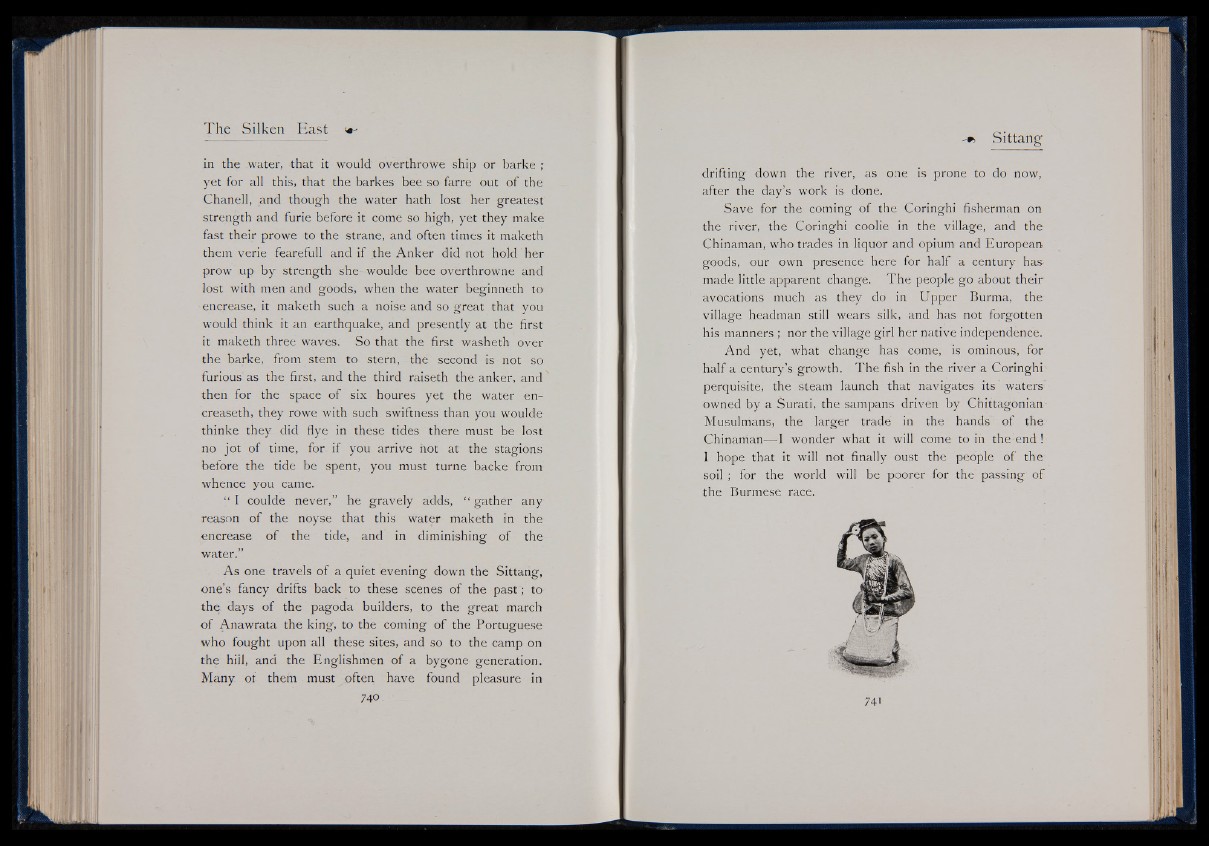
in the water, that it would overthrowe ship or barke ;
yet for all this, that the barkes bee so farre out of the
Chanell, and though the water hath lost her greatest
strength and furie before it come so high, yet they make
fast their prowe to the strane, and often times it maketh
them verie fearefull and if the Anker did not hold her
prow up by strength she woulde bee overthrowne and
lost with men and goods, when the water beginneth to
encrease, it maketh such a noise and so great that you
would think it an earthquake, and presently at the first
it maketh three waves. So that the first washeth over
the barke, from stem to stern, the second is not so
furious as the first, and the third raiseth the anker, and
then for the space of six houres yet the water en-
creaseth, they rowe with such swiftness than you woulde
thinke they did flye in these tides there must be lost
no jot of time, for if you arrive hot at the stagions
before the tide be spent, you must turne backe from
whence you came.
“ I coulde never,” he gravely adds, “ gather any
reason of the noyse that this water maketh in the
encrease of the tide, and in diminishing of the
water.”
As one travels of a quiet evening down the Sittang,
one’s fancy drifts back to these scenes of the past; to
the days of the pagoda builders, to the great march
of Anawrata the king, to the coming of the Portuguese
who fought upon all these sites, and so to the camp on
the hill, and the Englishmen of a bygone generation.
Many of them must often have found pleasure in
drifting down the river, as one is prone to do now,
after the day’s work is done.
Save for the coming of the Coringhi fisherman on
the river, the Coringhi coolie in the village, and the
Chinaman, who trades in liquor and opium and European
goods, our own presence here for half a century has
made little apparent change. The people go about their
avocations much as they do in Upper Burma, the
village headman still wears silk, and has not forgotten
his manners ; nor the village girl her native independence.
And yet, what change has come, is ominous, for
half a century’s growth. The fish in the river a Coringhi’
perquisite, the steam launch that navigates its waters
Owned by a Surati, the sampans driven by Chittagonian
Musulmans, the larger trade in the hands of the
Chinaman—d wonder what it will come to in the end !
1 hope that it will not finally oust the_ people of the
soil; for the world will be poorer for the passing of
the Burmese race.